Robin DePalma-Rowe from MA1st shares key preparation strategies when preparing to open multiple martial arts schools.
- How Robin learned the ropes of running multiple schools
- The advantages and challenges of running a family martial arts business
- Robin’s tips for martial arts school owners who are planning to open multiple schools
- How to develop a strong team of workforce to achieve your school’s growth goals
- How to prevent the common risks of entrusting your business to others
- And more
*Need help growing your martial arts school? Learn More Here.
TRANSCRIPTION
We have it set up with the high performance stay skill. We set this up as a career job. Where they’re going to make more working for us then if they went out on their own, because we do all the business side for them. They get to do all the fun side of just teaching, but we pay them well for it. And they see that. They see it, they appreciate it, they see the value and why would they go?
GEORGE: Hi, this is George Fourie and welcome to another Martial Arts Media business podcast. Today I'm speaking with Robin DePalma Rowe. And Robin is the wife of Kyoshi Fred DePalma, who's from DePalma's Karate and MA1st, also hosting The Main Event in San Diego in April next month. So we’re going to have a bit of a chat and we had a bit of a laugh before starting this conversation. How would you refer your position in the organization Robin?
ROBIN: I call myself the vice president of the organization. And my husband is the president and then, we all know that the vice president is the one who does all the work, so we laugh, we say he married well.
GEORGE: Married well, all right. All right, and Fred's of course in Thailand right now, so he has no way to defend himself in this conversation. So this will be fun! All right, look Robin, I guess we should start right at the beginning – who is Robin DePalma Rowe?
ROBIN: So, I started in this company or in this business 21 years ago, that was actually when I met Fred. A month before we got married, I thought, you know, I don't know anything about martial arts. I should probably start training and at least have an idea of what martial arts is all about. And when we got married, he didn't want me to have anything to do with his school, he wanted to be able to come home and when he came home, he could leave work behind, dinner would be on the table, house is spotless – you know, that perfect fairytale wife and the joke was, within the first two months, he married the wrong person.
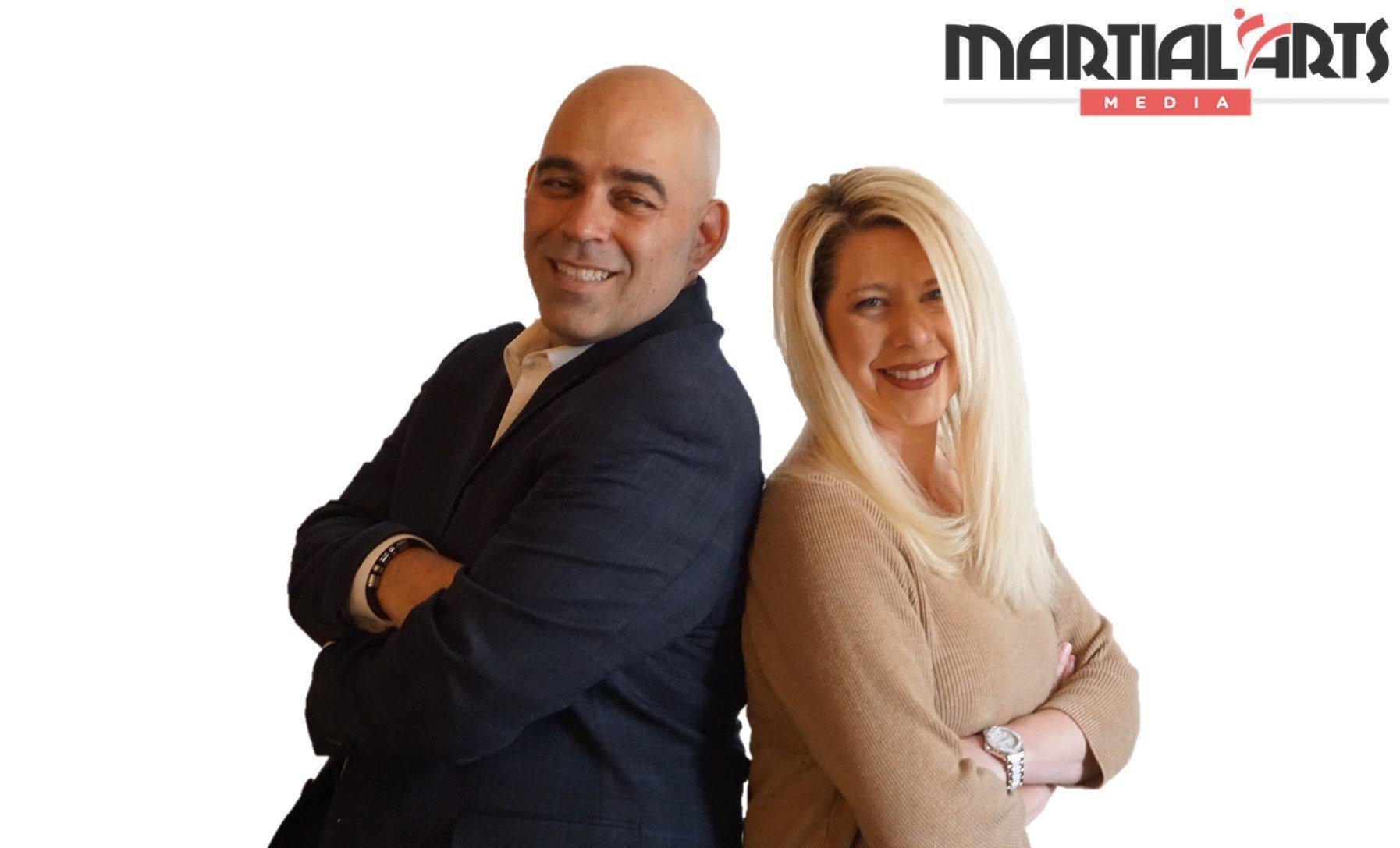
So I think it took about two months to start working at the school, but I started as janitor and gopher. And so I was cleaning the school and running errands, go for this, go for that. And then I think what made us both realize what my potential was, was when I started the cardio kickbox program. So we’d been married… it was within the first year of being together and I’d been training martial arts, I think I was a purple belt at the time and Tae Bo had just come out. And I was always into fitness, I wanted to be a personal trainer, I was on the fitness side and I said, you know what? I think I could do that cardio kickbox thing. Would you let me try it? And he was like, OK, give it a shot. He knew I had the fitness background for it and could run with it. And boy did I run with it!
So within… I don't know how long it took, but not too long, I had 700 cardio kickbox members training under me. And I was teaching 2-3 classes a day, run in different locations, teaching them all over the place. And I think that's where we both saw that this is kind of fun working together and what I'm capable of doing and then all of a sudden, he went from one school to six schools, and we have a lot of young guys running the schools, so we needed a strong program directors. So I got to then go be program director at six different locations. It was at two different locations every night, doing intros there. Doing enrollments over the phone, doing follow-ups with people in all the locations, from wherever I was from. And so I don't know how many people can say that they've been the program director of six schools all at once, but that was fun.
That was kind of my working up and then I moved up to assistant instructor at our biggest location, while still doing program directing at one location, as we started to get the other schools established. And then a few years, I don't know, I believe I was a black belt when I started to run my own school. And so we had a location where a manager needed to move on to other things, so I got to go fill in the head instructor manager position and at that location. That was our most profitable location ever, besides what my husband had done.
And so I ran that school for about 5-6 years and then built it up and at that point, sold it to my head instructor and then that's where we decided multiple locations, we’re going to start franchising. And I moved to a corporate office then to help them run and oversee everything.
So it's kind of, I had to work my way up, I worked every job on the way up. Learned how to do everything, did everything alone, then moved up to running my own school and then worked up to the corporate position. It was kind of the same thing you'd do in any career: start at the bottom and then work up to the corporate position and then that's where I got to help oversee everybody. It’s been fun, in addition to us doing it together, we have our boys who work it with us. Our oldest son manages one of our schools now and so it's fun to watch him excel and watch what he's developed into and what he continues to develop into.
So overseeing all the schools right now, oversee the marketing, the staff training, putting the events together, activities. I watch their numbers, deposits, the pro shop orders – everything. And I think the biggest thing I've learned in the past couple of years is watching the different dynamics at each location and how different personalities work together. My biggest thing now has been how to put proper teams together to get the best results. Quick summary there!
GEORGE: Quick summary. Ok, so that sparks a lot of questions. Just to start: how do you handle the family dynamics, as you mentioned it wasn't a planned thing to keep it in the family like it did, but that's what it's really grown into. Obviously, it works by the results that you're getting. So how do you manage the whole family dynamics within the business?
ROBIN: It was kind of trial and error as we came up through it. I don't like to stay at home, so I don't think it would have worked for me to be a stay at home mom anyway. But as the kids were growing up, I started to realize, you work at a karate school at night, well that's when your kids are home from school. So how do you mesh that to where you actually see your children? And number 1, I always had helpers. Part-time nannies, that would come and help when they were little and then when they got to be about the age of 8, we’d let them actually come work in the karate school with us.
So we'd give them little jobs, we'd have them run concession stands at belt exams and tournaments and let them earn money doing that. And taught them how to… we made them purchase their inventory and then taught them about profit and loss, you know? And sometimes they wouldn't sell enough and it would be upside down in their sales and then other times, they'd make a profit and they'd be excited. And then it got to where they’d actually hire staff to run their store for them and they'd pay their staff a few bucks, so they'd still get to make their money and then give the staff a little bit and have people run their store for them.
But we were really fortunate that our boys wanted to be part of this and I think what helped with that was that we never just said, well, you need to just help out, because it's a family business. We always gave them specific jobs and assignments and pay them for it. Let them earn things, work towards things. So that's why it's just been a lot of fun, doing this as a family. You know, it's a family environment anyway and then raising them up with a strong work ethics, they know how to count money, they know how to work the cash register, they know how to talk to people, they know how to talk to adults, they know how to be respectful to adults. I just look at all of the attributes that they have that they're way beyond the other kids their age with doing that. It’s been a real blessing to do that.
GEORGE: Wow, that's awesome. So that's got to be a lot of knowledge, getting passed on in a very systematic way and I like how you gave them control in little increments of handling their own stock and handling their own money. Obviously, the interaction and learning how to deal with people, that's fascinating. So Robin, you mentioned you went from one to six schools; now, I'm assuming there was a lot of progression and obstacles within that one to six. Do you mind elaborating on that a little more?
ROBIN: This is another funny one. So, my husband and I only dated four months before we got married. And lucky we were the right ones for each other, we've been married 21 years now. We dated four months, I met him, he had one school. By our first anniversary, we had six schools and a baby. And I just looked at him and I said, you either loved me or hated me – I don't know which one! He's from Connecticut when he originally opened in Connecticut in 1986, he had four schools in Connecticut and realized, probably five years into it, this is a good profession, this is what he was going to do, but he'd rather live in a better, warmer environment. And so, he traveled the country for a year to figure out where he wanted to live and ended up here in Arizona, where the weather is nice. And decided he was only going to have one school when he moved here.
And so, he opened his first school in Arizona in 1992 and then we got married in 1997, so from 1992 to 1997, he did really good with just that one school. But I think it was just eating at his brain that whole time. And then, I don't know, maybe now that he was married, he thought he had support or he needed a reason to get out of the house again, I don't know which one. But he opened five schools, five more schools in that first year, all at once. And really, I think the real reason behind it is by, now being out here five years, he had staff developed. Like, he had people developed that were ready to do it. And one school can only offer jobs to so many people and so by opening multiple locations, that gives a lot more people the opportunity to do this as a job.
GEORGE: Got it. So what's the biggest step you got to take transitioning from the first school to the second school?
ROBIN: First thing is, it's hard to own two. You really need to own three, if you're going to have multiple schools. Because that's where a lot of people go wrong, they think they're going to duplicate what they do in the second school, but you're only one person. So you can't be at both places. And so you'll end up leaving the one school to go and put all your energy into the other and then the original is going to drop. And then you put the energy into the other, and that one grows. But then you see the original drop, so you run back to save that and then the other one drops and so, really, the best way to do multiple schools is to be able to step out of it altogether and not be a key employee at any of them. And be able to oversee all of them, so that way, you can continually train the staff and oversee them, which helps you better duplicate your results.
GEORGE: Ok. So, the first step would be to really remove yourself from your first school?
ROBIN: Right. To get a strong team there and a good head instructor and a good management team there.
GEORGE: Ok, and what would you advise people, someone trying to do that? I mean, especially if you are the star of the school? So you're the main attraction and everybody wants to train with you, how do you step back and not be the center of attention without disrupting your entire student base?
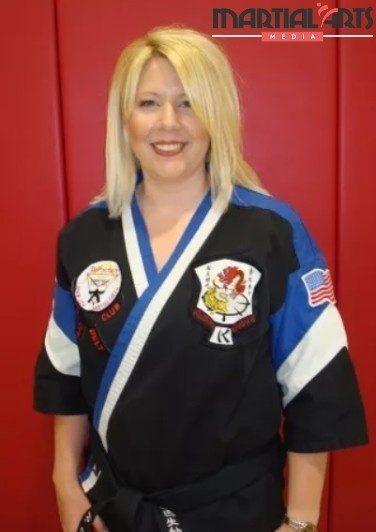
ROBIN: Right, and that's the tricky part, but this is how you do it. We had to do this several times when we moved the head instructors and then I had to do it myself when I stepped out of my main school, you bring in your assistant instructor, who works alongside you and you start to move them into the more leadership role of the school. So you have them start to run more drills and be in charge of more things, while you're still on the floor with them.
But you're slowly transferring that power over to them. And then your students start to get used to that person being in charge, but you're still on the floor, so they don't even realize anything's going on. And then as that person starts to run things, you start being involved less and less and less, and eventually, you just kind of disappear and the students are now already set on your replacement and hardly even realize that you left.
GEORGE: All right. Now, during that, do you have sort of like a set timeframe that you go by, or you just judge it on the feeling within the class?
ROBIN: It's important, a lot of times you have to have a timeframe you have to have it done by. You can do it within three to six months, you could even do it in three as long as you have… the whole key is having a strong person that's taking your place. If you're going to replace yourself with a brand new instructor, who isn't very good at teaching, it's not going to work very well. You've got to have that team member that you've already built up, who can pretty much run things very similarly, or at least just, it’s going to be their personality, but can run things just as strongly as smoothly as you did, to make that easy transition.
And I think that’s the whole key. We always say, anybody who says they want to open multiple locations, we always tell them not to. It’s a lot of work! But we love it, I mean, it's fun, but my husband and I, we don't like downtime, we don't like to not be busy, we like to work hard. And we love seeing the growth of our team and seeing the results and watching their progression as we go through it. And we just feel, we like that we can affect so many more people through multiple locations.
But you've got to be ready for it. Don't do it without people ready, or it won’t work. You have to have people ready. And you have to be good at training your staff to do that.
GEORGE: Awesome. Ok, Robin, so let's just look at the devil's advocate position. So, you invested all this time into this instructor to take your place: have you ever felt the risk of that person could just say, hey, I've got all this student base – and I hear about this all the time happening with schools, that they've put all this focus on this one instructor and then the instructor just decides, hang on: I'm just going to go run off and open my school next door or, within the same reach and there goes all your student base. Has that ever happened to you, and if not, how do you combat that scenario?
ROBIN: I’m glad you asked that question. Has it ever happened to us: yes. And that's why we know how to do it right now, so it doesn't happen again. It happened to my husband, it was when I first met him. He had gone away to China for a month to train at the Shaolin temple, and while he was gone, he had a businessman whisper in his head instructors’ ear, hey, you can do this on your own. And when he came back from China, his student had moved a quarter mile down the street and solicited all the students. They didn't all go, but a handful of them did. Of course, because the head instructor is who they're used to, they're going to follow their head instructor, that's who they're connected to and who they want to train under.
And so, the way we prevent that from happening – we haven't had that happen since. So it's been 20 years now since that’s happened. So what do we do differently? We pay our guys well. We have it set up with a high performance stay skill, we set this up as a career job, where they're going to make more working for us then if they went out on their own because we do all the business side for them. They get to do the fun side of just teaching, but we pay them well for it. And they see that. They see it, they appreciate it, they see the value and why would they go?
We allow them to purchase their school and own it, anytime they want, they can run it and our top guy right now, we said, why don't you own your school? You can own it now, and you'd make more owning it, but you'd have more responsibility. And he said, why would I want to do that? He said, I'm perfectly happy with my pay, I'm getting paid well and you guys do all the hard stuff, while I get to do the fun. That's the key, is paying them well and making it a career, a career paying job for them, it’s a high paying career job. We actually have, my brother in law is an engineer – our top manager is making close to what an engineer would make.
GEORGE: Fantastic. Let's explore the hard stuff. So, the instructors got the easy part to take over the school and run the school, but you are doing the hard stuff. Now, what do you classify as the hard stuff?
ROBIN: The hard stuff is marketing, putting the marketing plans together. Our main marketing are festivals, getting into all the community and school festivals. We actually work with 80 elementary schools between our organization and my job is to research all of their websites, and see what events they have going on that we can be part of. And getting those booked for everybody. We run the Facebook ads – well, we hire a company to run those for us, but we’re getting those going and any of the marketing, we set up for them.
Their responsibility for the marketing side is following up with the people that we send in. So we send them in, you sign them up. So they're in charge of signing them up. But we give them a real easy six-week, quick start program, to try to make the sign-up process really easy. And I apologize, I just got a low battery warning on my phone. So hopefully, we’ll get this done before the battery dies!
GEORGE: Awesome!
ROBIN: We do all the payroll, all the bills, we’re responsible for all the leases, they aren't responsible financially for anything, they can just up and walk away anytime they wanted and we've got the responsibility of all of that. We put their calendars together, all the staff training. We put together the inventory orders, we put together the list that tells them what to order and how much to order of everything and how often to order it. We do all the numbers and the stats, I know a lot of people don't like doing those, so we do those for you. Those would be the main things I would classify as the hard stuff.
GEORGE: OK. So, to combat the battery life: as a last couple of questions. Firstly, let’s just chat about the Main Event. I’ll be heading over to San Diego in April, depending on when you listen to this or watch this episode. What can people expect at a… I mean, there are always events happening in the martial arts space. I guess some good, some bad, or I’d rather say good and not so good. What would you say is different from the Main Event to other industry events?
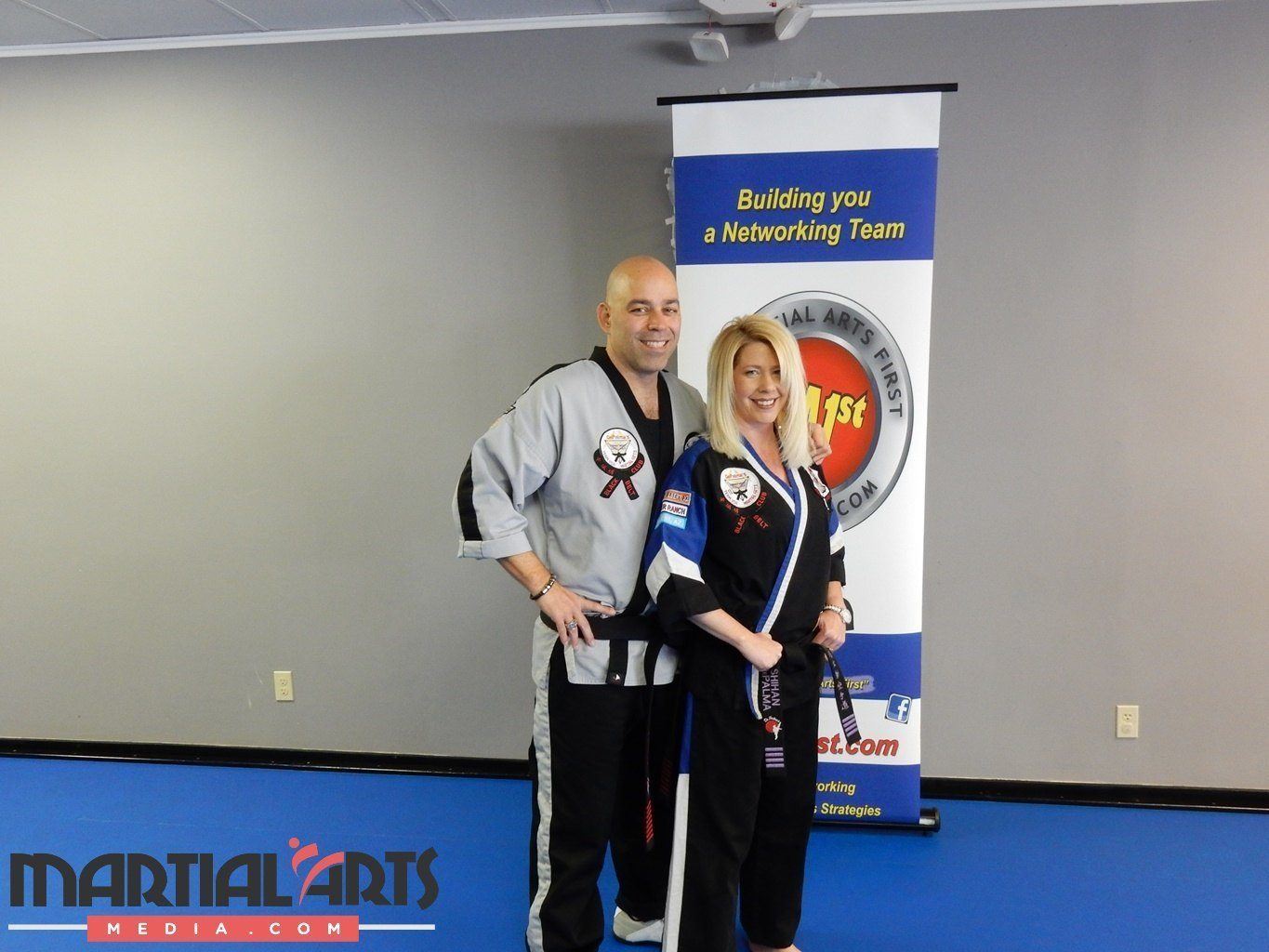
ROBIN: I would say there are two main things that are going to be different: our top one is that it is a smaller event, it's not over packed, which allows you to network more with people. So it's a more personal intimate event, where you're going to have time to actually interact with people and get to know people and you develop those connections and those friendships. And you actually have time to talk to the speakers and the speakers will talk back to you.
So you can ask them questions outside of their seminars. And I think that personal interaction, that's been their top takeaway, where they all say they really enjoyed that. With it being smaller too, our teams that we take to get to interact, they develop friendships. So they develop friendships with people all over the country, who do the same thing that they do. And I know they really appreciate that and building those friendships.
And then number two would be our speakers. The big thing we tell our speakers: whatever you're talking about, make sure you give all the information about it. You can't just be trying to sell something. And then we’re very particular on who the speakers are and what their content is, to make sure it's really valuable content and that you'll walk away with things you can actually implement when you go back to your school.
GEORGE: Alright, cool. And what can we be expecting from you, Robin?
ROBIN: I can do anything! I think one of my main topics this year has been leading your team to excellence or leading your students to excellence. And working both of those, so leading your team to excellence and leading your students to excellence. And I'm talking about what it takes to do that and how you have to really pull it out of them. You can't just tell them to do something; you have to get in there, get in their face and pull it out of them and lead them to that excellence. And that's going to create that passion in the martial arts that they need to have to want to give it their all as they are training to their black belt. And the same with our teams and our staff is, teaching them how to be excellent, continuously training them and teaching them how to get the most out of their students as they're teaching those, so it's a domino effect.
Those have been my big topics this year, trying to think of the… I can't think off the top of my head what the business one has been this year. But we always talk about marketing, that's a big one for everybody, how to get a student in the door. I think even more important than that is how to keep the students and that's been a big thing. We just talked about it in our manager meeting Monday. If you're not keeping your students, it does no good to keep them in the door. To get them in the door, you need to keep them and how do you keep them? They've got to want it. They've got to love how they feel when they're in class. They have to leave every class and go, man, that was the best thing ever! You know? That was an awesome class and if you leave with that feeling every day, then you're not going to quit. And so really, the feeling that they get when they're in class, it's that simple. The feeling they have when they're in class is what's going to keep them training and not quitting the training. Keep them training to black belt and beyond black belt.
GEORGE: Fantastic. Awesome – Robin, it's been great speaking with you. Are there any last words? And maybe going back to the beginning of the conversation, any last words about running the show, anything you want to add?
ROBIN: Yeah – I love my life, I love my job. I feel we’re really lucky to be able to live in this positive little bubble, with everything bad going on out there in the world. We are not a part of it, we don't have to be a part of it. We get to offer anybody who wants to, to come into our walls and experience the same positive and – I hate to say happy place, but this is a safe, positive environment, where you feel good about yourself, where you're accepted, where you're loved. And we just get to be a part of that all the time and we get to completely keep ourselves isolated from all the bad that's out there.
And I just feel so blessed that we get to do that and as we go around and meet these other martial artists, I feel we get to meet the best people in the world and become friends with the best people in the world. And having these events just help us to grow that network and helps all of us to join together and have that same type of relationship, the same type of feeling. To protect us from the bad that's out there and we get to just focus on the good.
GEORGE: I like that, fighting the good fight.
ROBIN: Yep!
GEORGE: Making the good difference. Awesome – Robin, thanks a lot for speaking with me today and for anybody that's interested in the Main Event, you can head to the-main-event.com and get some tickets there. And if not, if you're listening to this later, you know where to go find, you can get more information about the future events and things going on with the DePalma's and everyone else. Awesome – Robin, thanks a lot, I will see you in about a month.
ROBIN: Sounds good, all right! Thanks!
GEORGE: Thanks, see ya!
Awesome – thanks for listening and thank you, Robin. If you're getting great value out of this show, please give us a review, a 5-star review would be, of course, more than awesome. If you're listening on iTunes, you can go through the podcast app, which is the purple app button. You can access through there. Any other device would be the Android type of device, probably through Stitcher – the same thing. And then, if not, if you're watching this through the video or anywhere else, just leave us a review any way you can.
Cool! If you need any help with your marketing, digital marketing, Facebook ads, Google ads, SEO, websites, all this technical stuff that most people hate and we eat for breakfast, you can visit us on martialartsmedia.com and we’re happy to have a chat. Send us a message and we'll see if we can help you grow your business!
Awesome – have a great week, I’ll speak to you soon. Cheers!
*Need help growing your martial arts school? Learn More Here.
Enjoyed the show? Get more martial arts business tips when you subscribe on iTunes for iPhone or Stitcher Radio for Android devices.


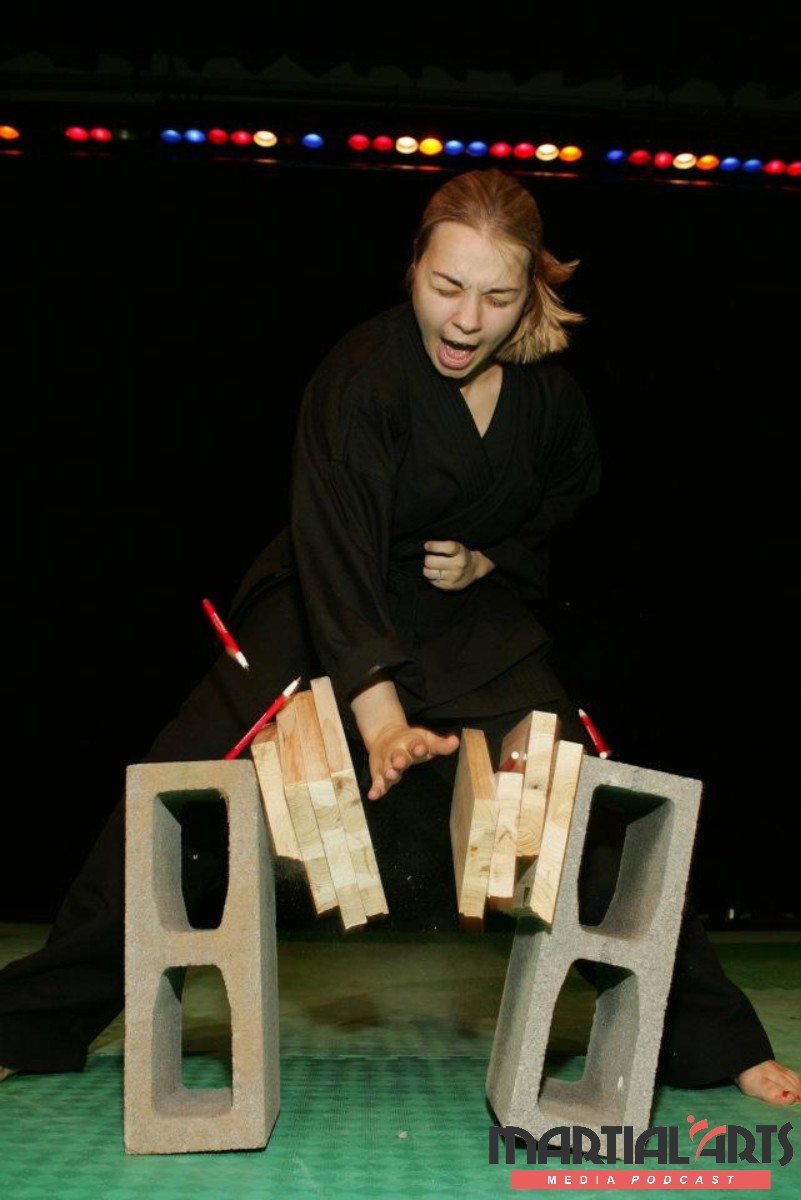
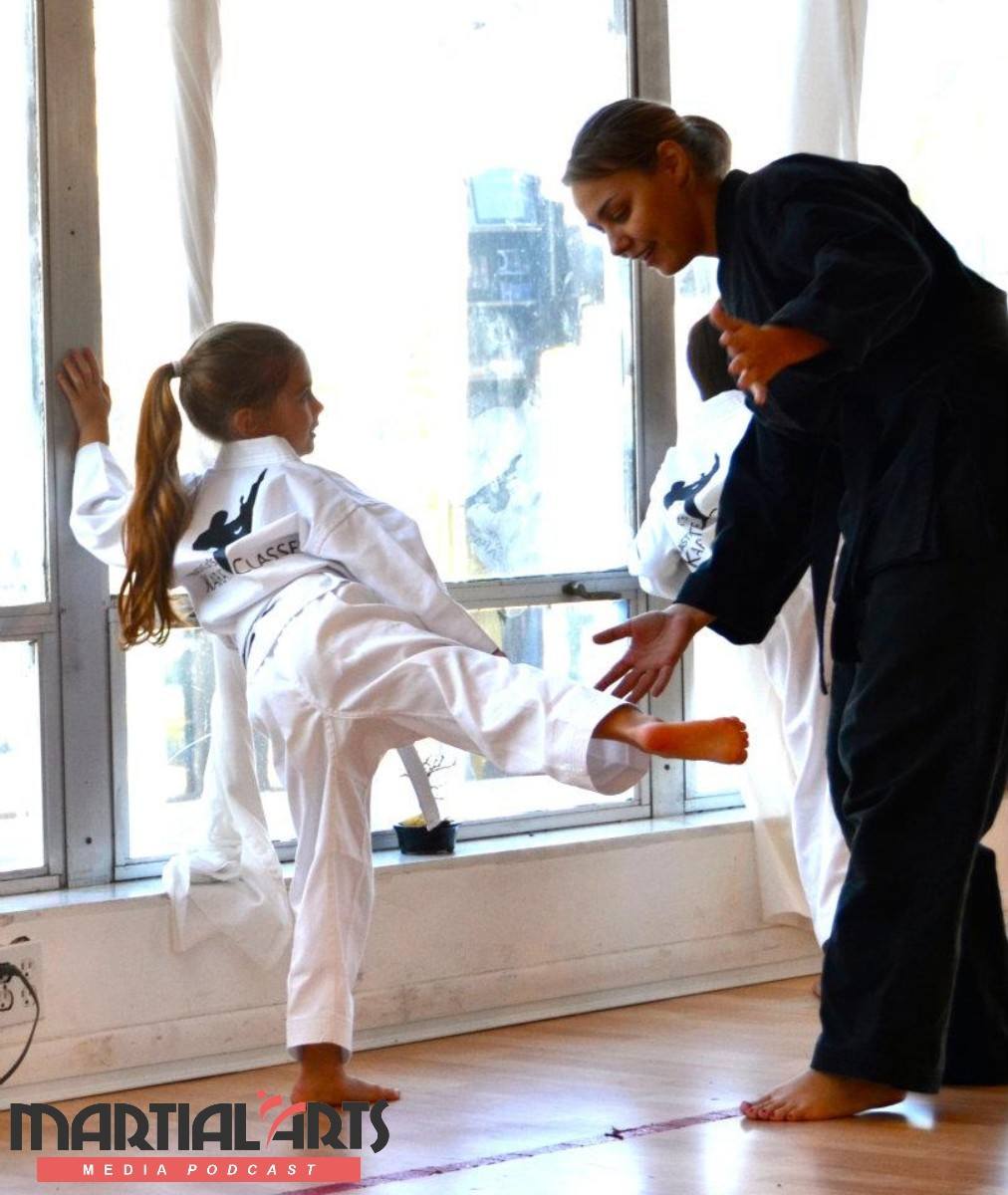 And a lot of it just comes down to listening and most of it is that the processes and the things that we use really come down to just communication. You know, so often, we’ll hear a parent wants to pull their kid out and typically, not listening to the reasons that they say at that point is the reason why so many people don't return back to martial arts. I was always in the unique position, because I've had so many former students come back to the training after three months, after six months, after six years, after breaks or periods of time that they wanted to return back and it's because I never stopped treating them as a member, even after they weren't there. So we continually kept in contact or connection or random phone calls here or there out of the blue, where I wasn't doing anything more than just being like, hey what's going on? Missed you, how have you been? You know, or getting to be able to keep that contact going.
And a lot of it just comes down to listening and most of it is that the processes and the things that we use really come down to just communication. You know, so often, we’ll hear a parent wants to pull their kid out and typically, not listening to the reasons that they say at that point is the reason why so many people don't return back to martial arts. I was always in the unique position, because I've had so many former students come back to the training after three months, after six months, after six years, after breaks or periods of time that they wanted to return back and it's because I never stopped treating them as a member, even after they weren't there. So we continually kept in contact or connection or random phone calls here or there out of the blue, where I wasn't doing anything more than just being like, hey what's going on? Missed you, how have you been? You know, or getting to be able to keep that contact going. As far as communication, I believe with training, if they're able to get up in front of a group and be a martial arts instructor, they can just as easily be the martial arts instructor to the parents in the lobby and build those relationships the same way. When there's a disconnect is that they think that the parents are no longer their students too.
As far as communication, I believe with training, if they're able to get up in front of a group and be a martial arts instructor, they can just as easily be the martial arts instructor to the parents in the lobby and build those relationships the same way. When there's a disconnect is that they think that the parents are no longer their students too.  You've got to show that you care, you've got to recognize that, oh – this person actually does have my best interest in mind. And if you can convey that, you're not going to have a problem then when that parent has a situation they want to… or like you've mentioned: when you drop the ball. I ordered you the wrong size belt, I got you your belt, but unfortunately, it came in 5 sizes too big and all this. Well have another one for you in the next 4 or 5 days, but here – use this one for now. They're going to overlook those kinds of things. It's definitely in our benefit as martial arts school owners and operators to make sure that we get to know our people and connect with them and recognize when these things happen. Because customer service is too late, that's overcoming objections and that's like, it's such a buzzword. It's such a sad way of trying to build things around something that's already gone, so see it before it happens, you've got to catch it before it happens.
You've got to show that you care, you've got to recognize that, oh – this person actually does have my best interest in mind. And if you can convey that, you're not going to have a problem then when that parent has a situation they want to… or like you've mentioned: when you drop the ball. I ordered you the wrong size belt, I got you your belt, but unfortunately, it came in 5 sizes too big and all this. Well have another one for you in the next 4 or 5 days, but here – use this one for now. They're going to overlook those kinds of things. It's definitely in our benefit as martial arts school owners and operators to make sure that we get to know our people and connect with them and recognize when these things happen. Because customer service is too late, that's overcoming objections and that's like, it's such a buzzword. It's such a sad way of trying to build things around something that's already gone, so see it before it happens, you've got to catch it before it happens.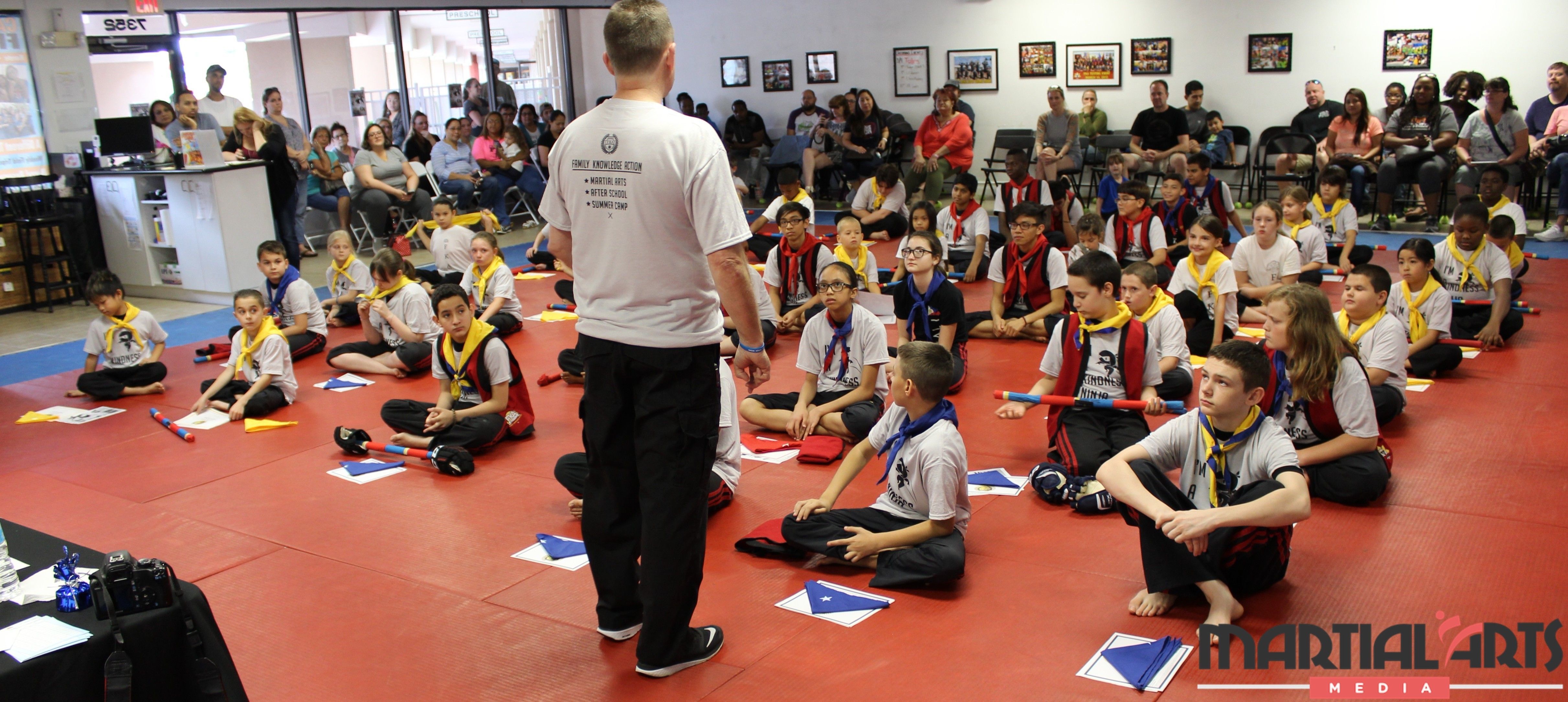
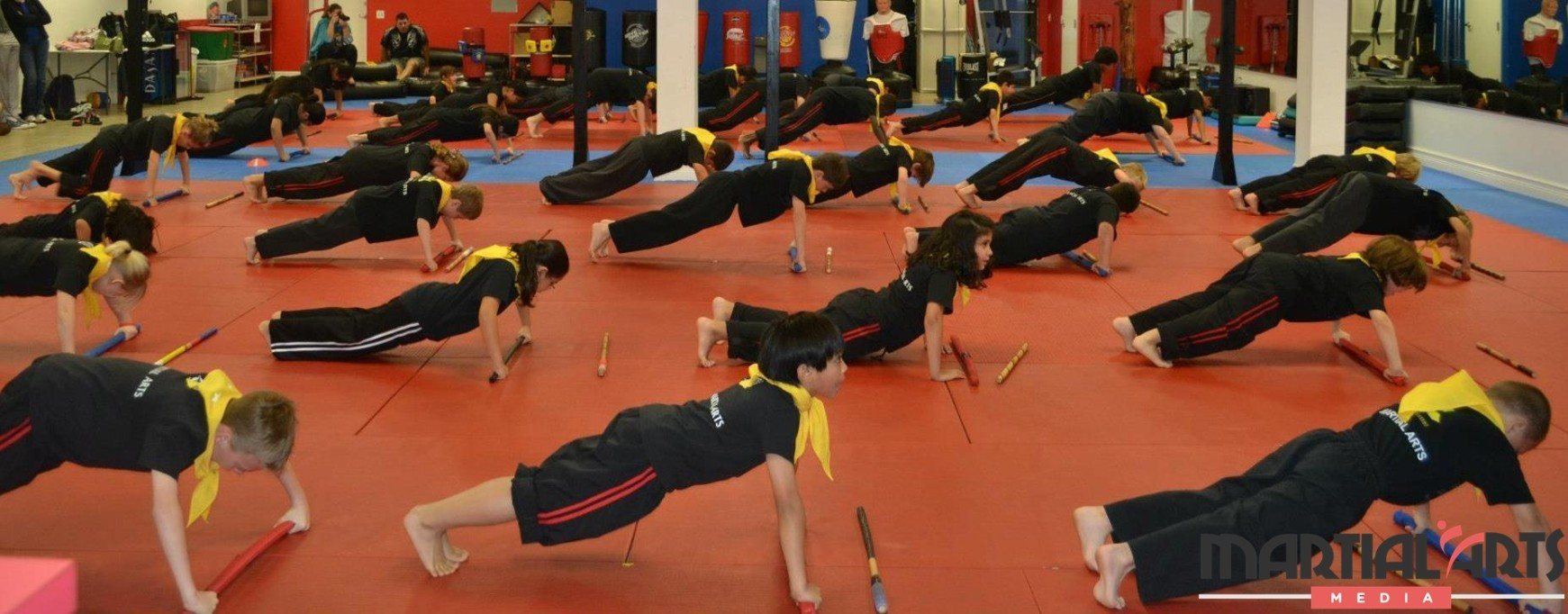


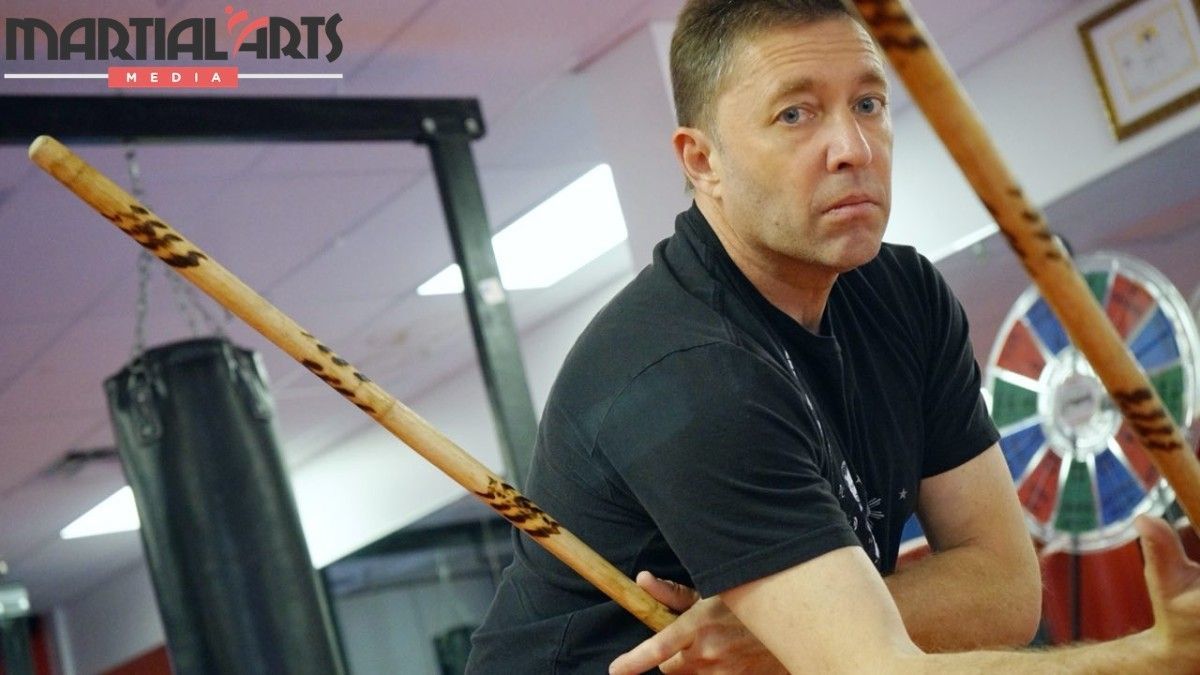



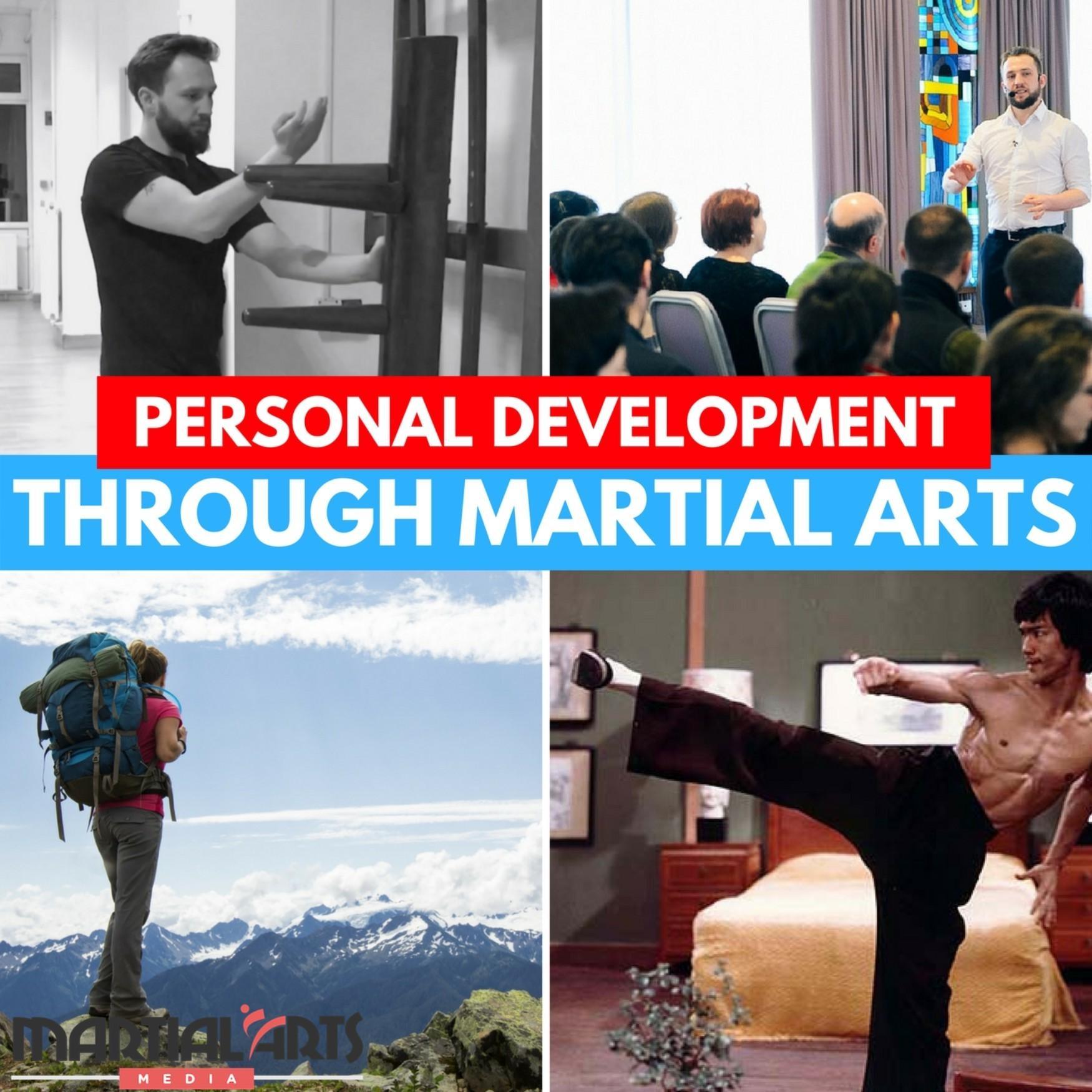
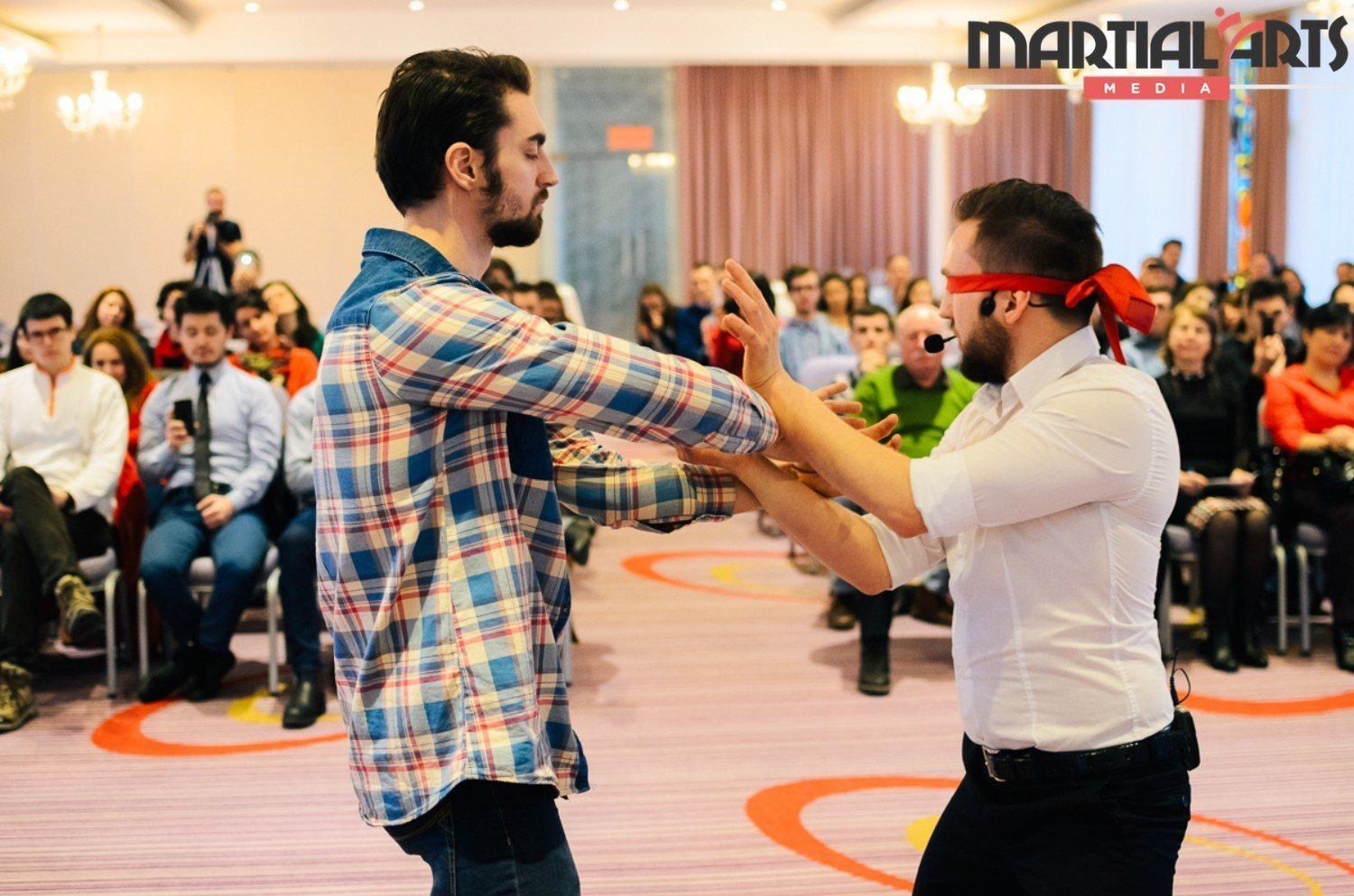
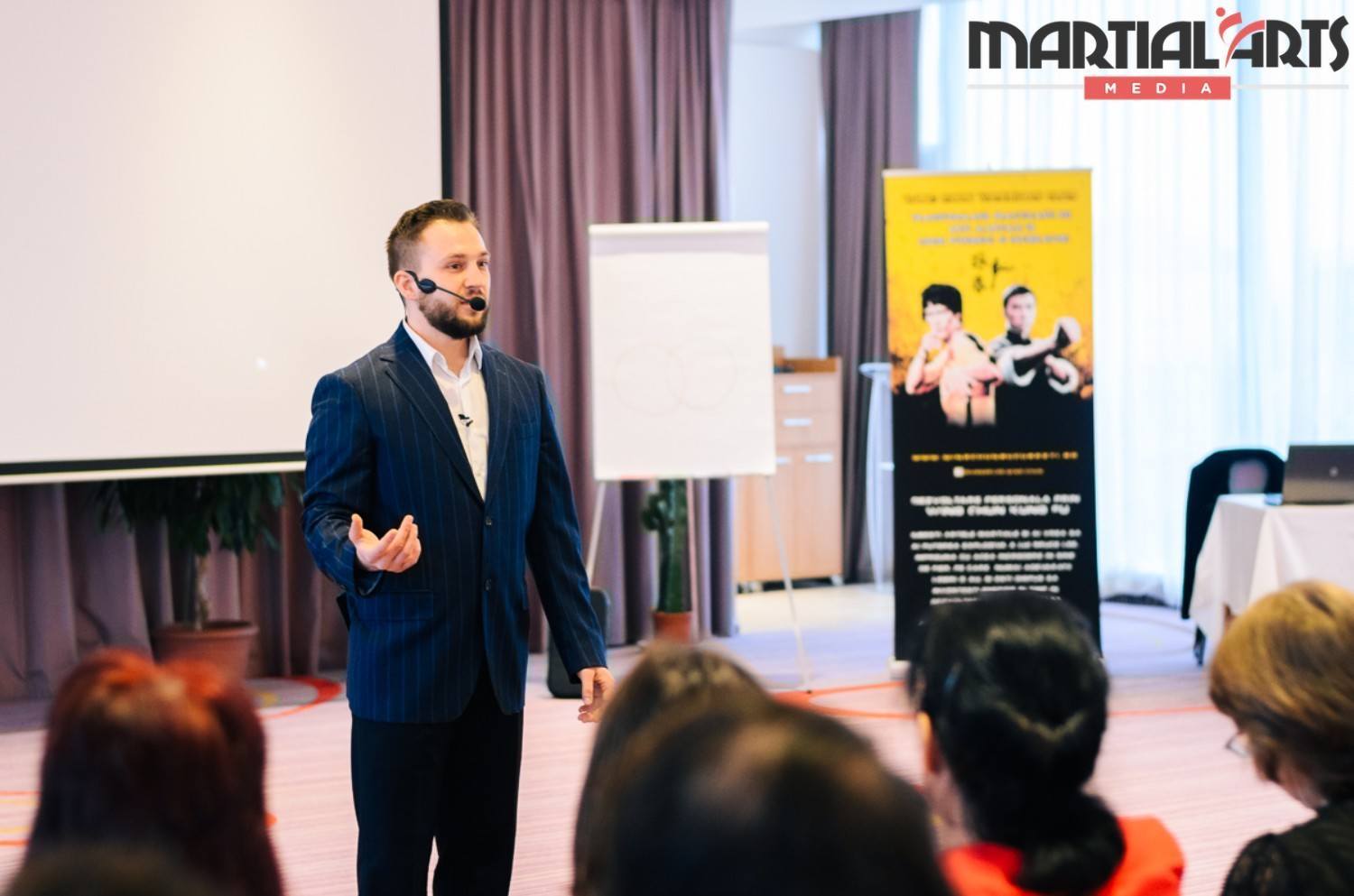
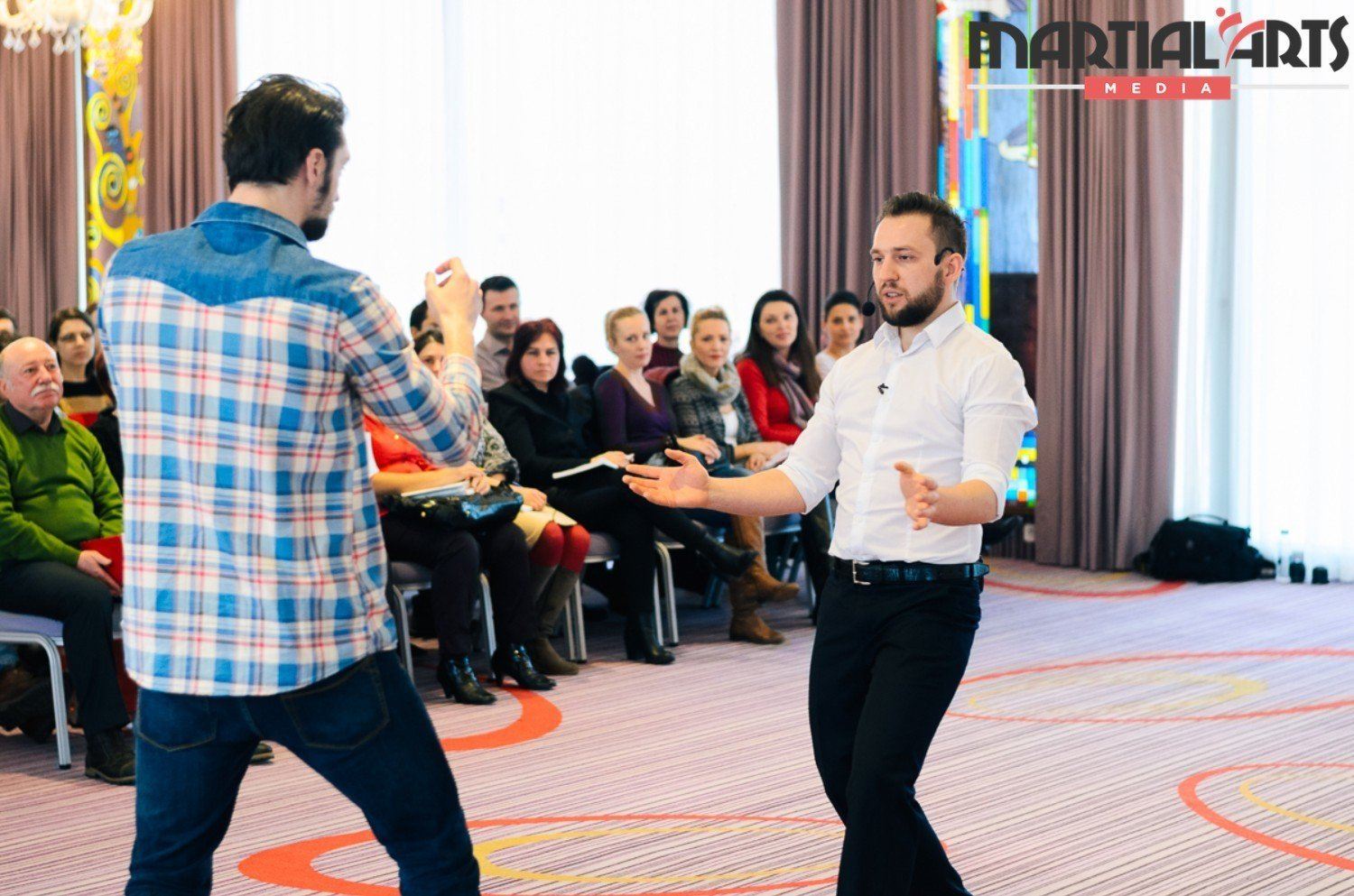
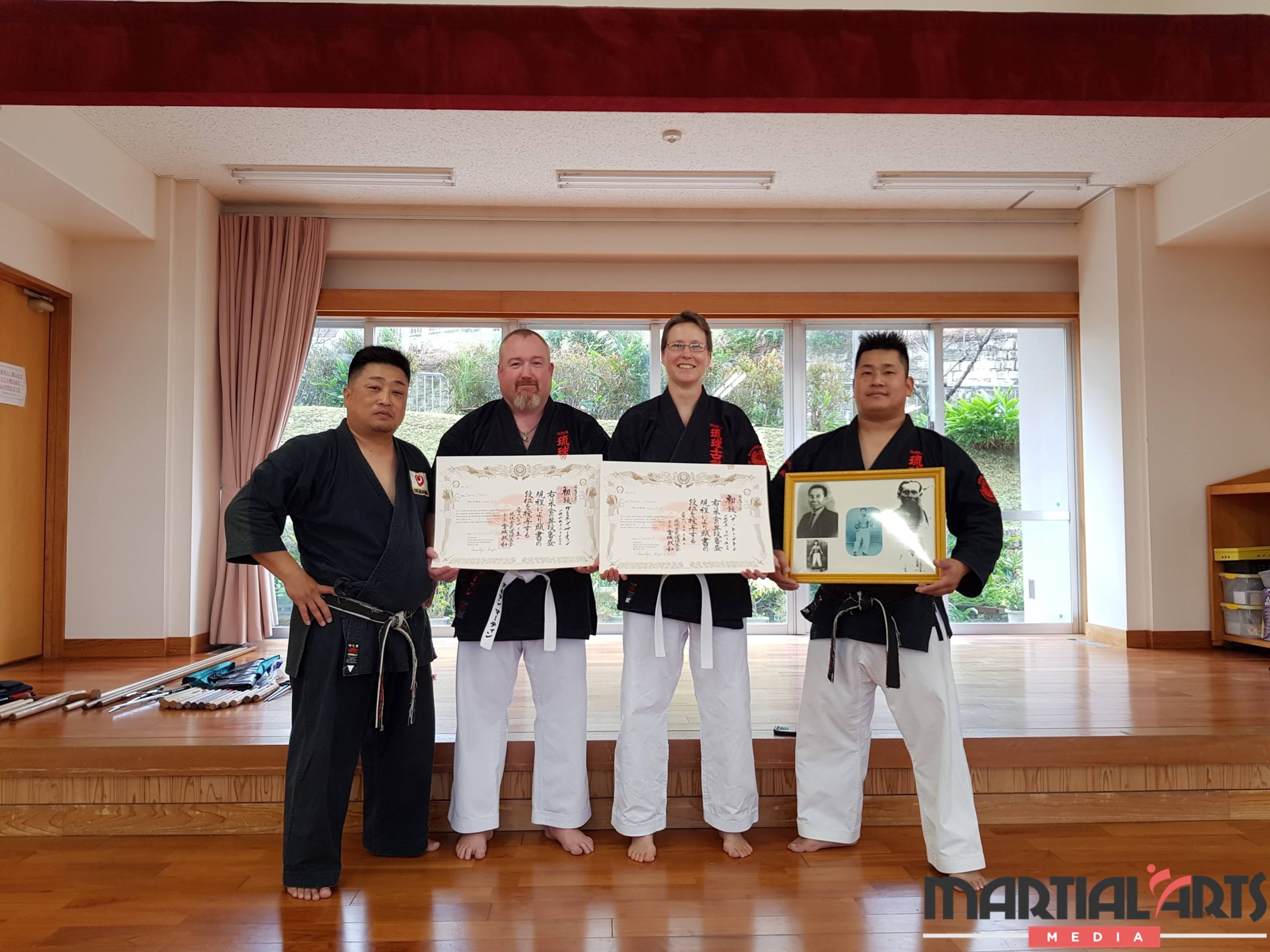
 DAMIEN
DAMIEN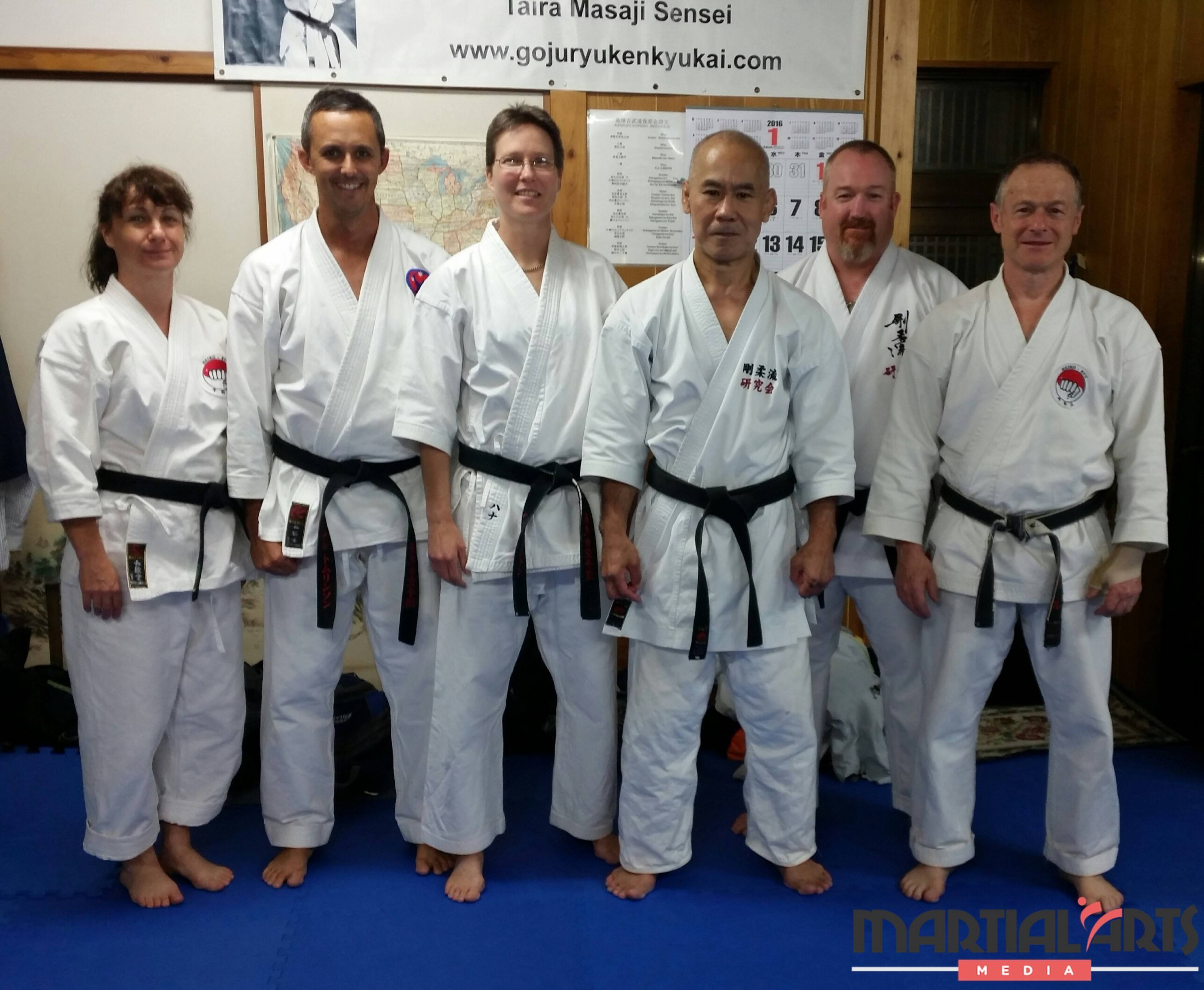

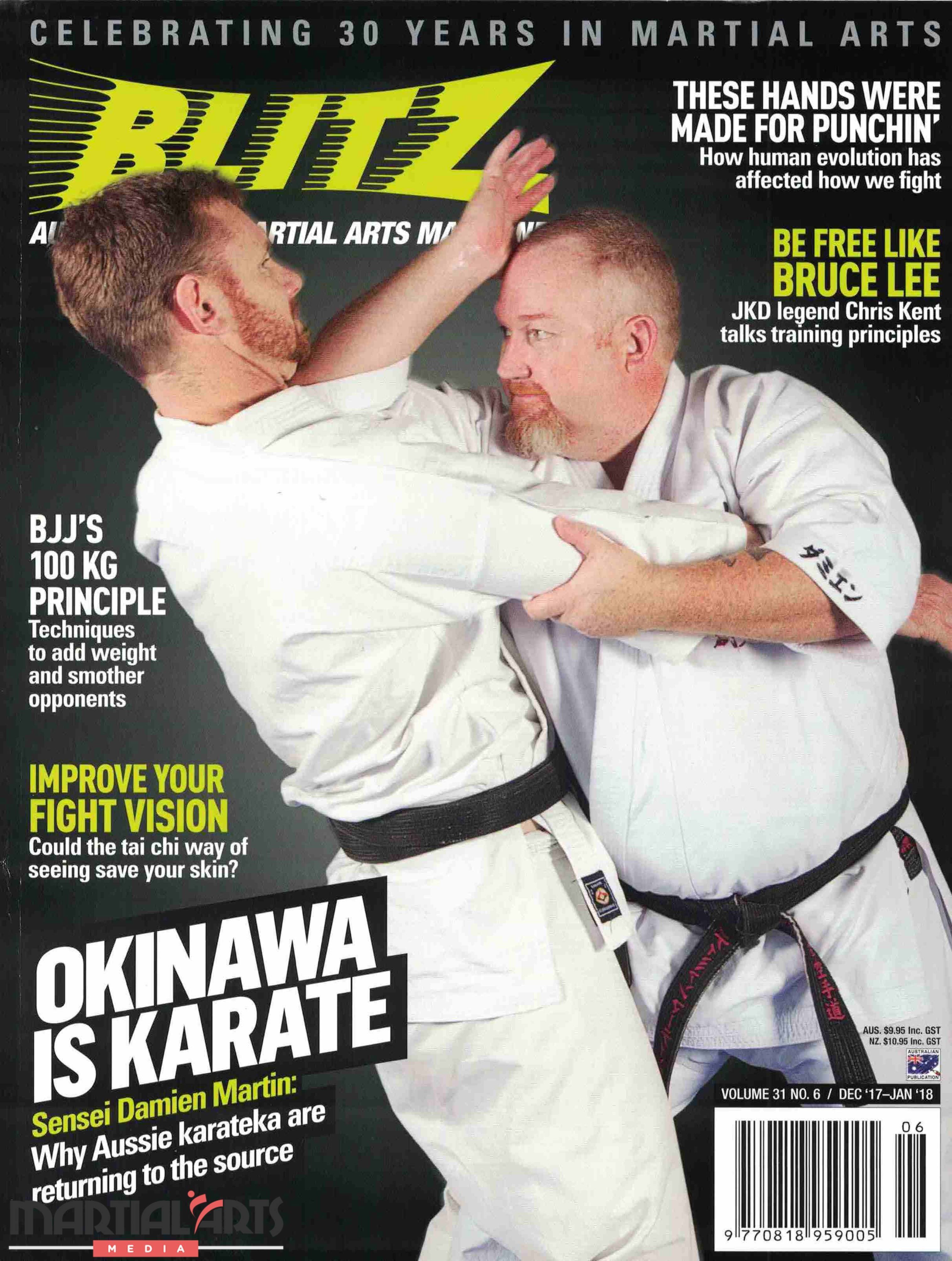

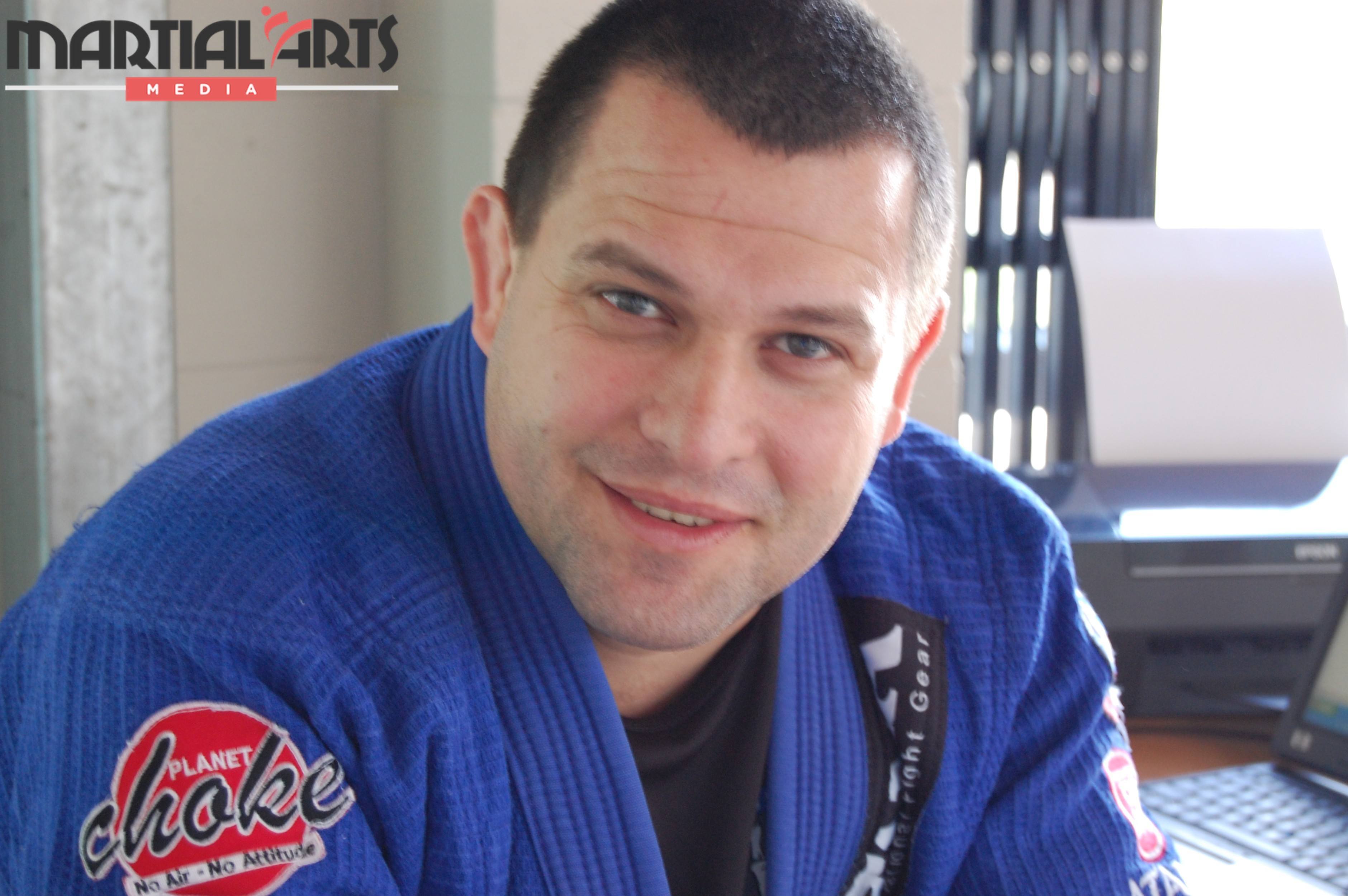
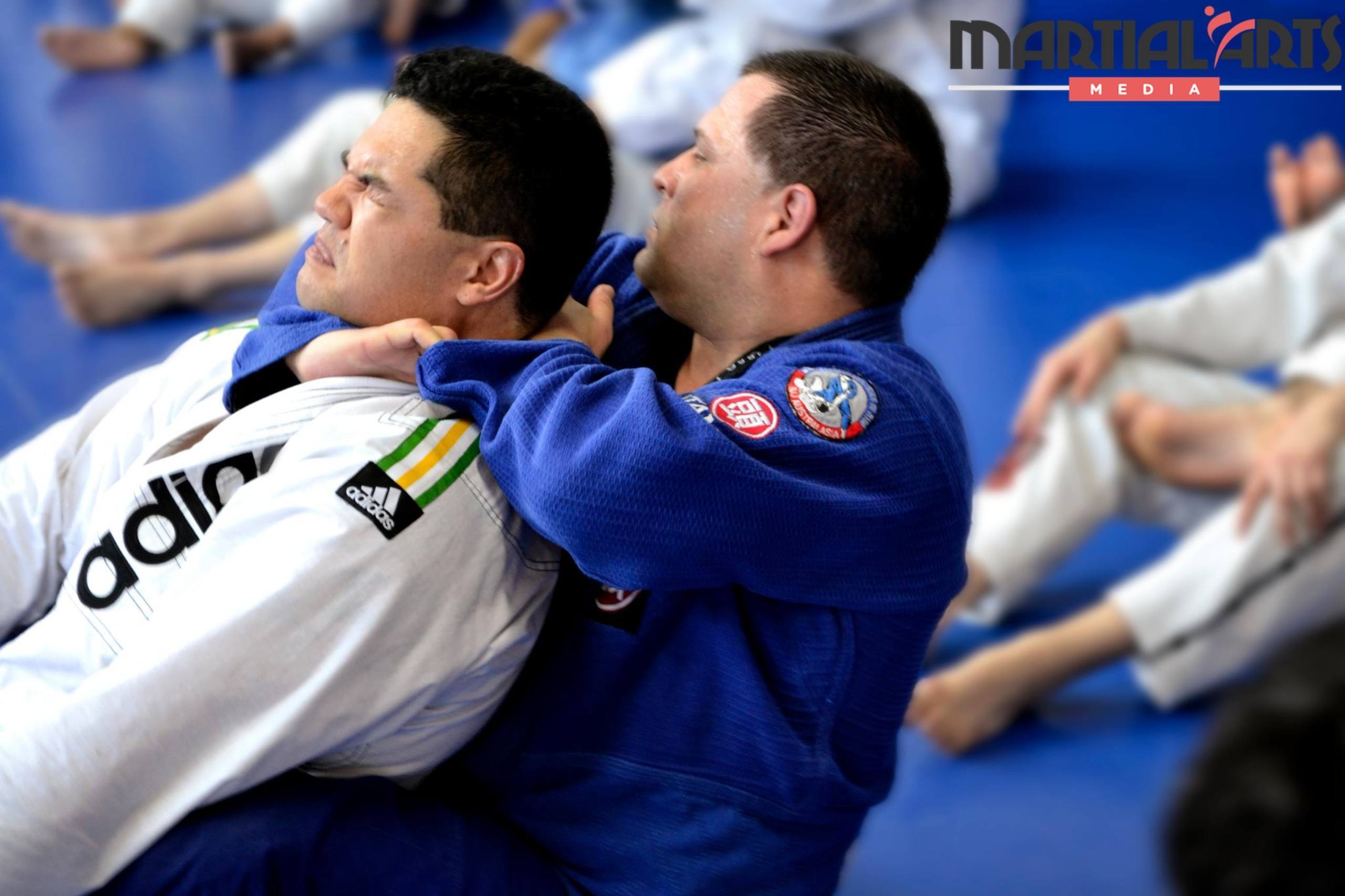

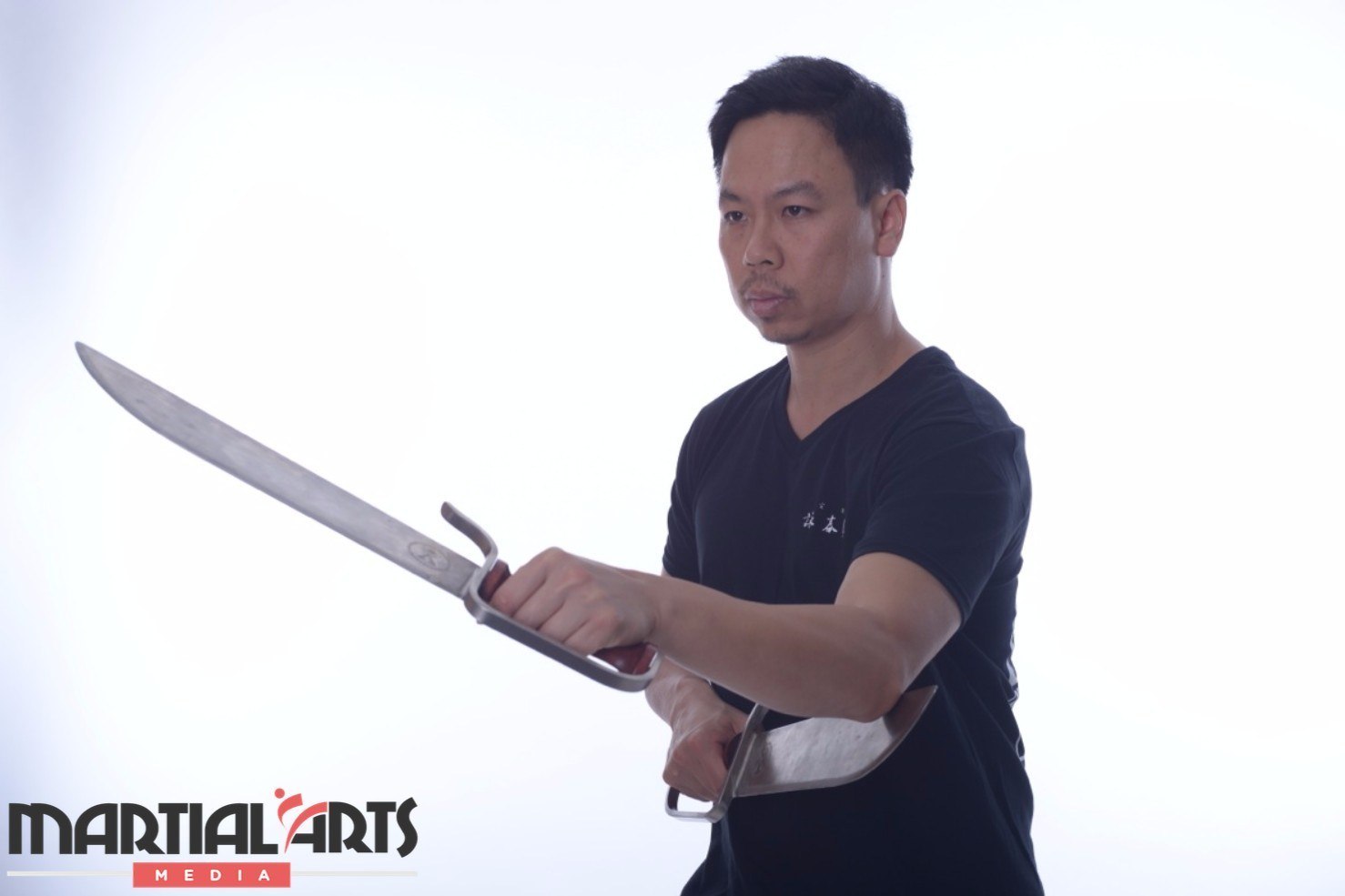
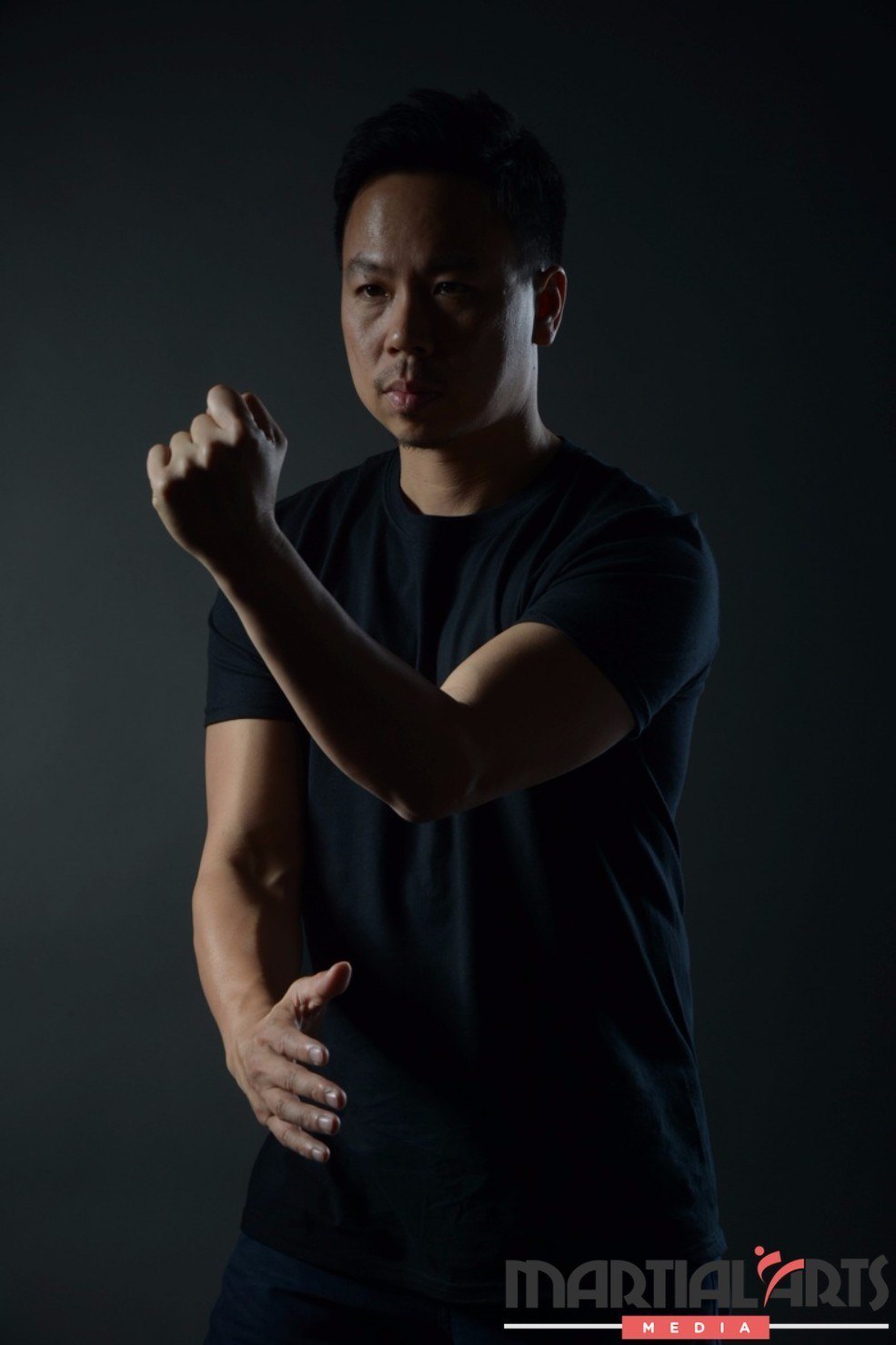 Jack
Jack

